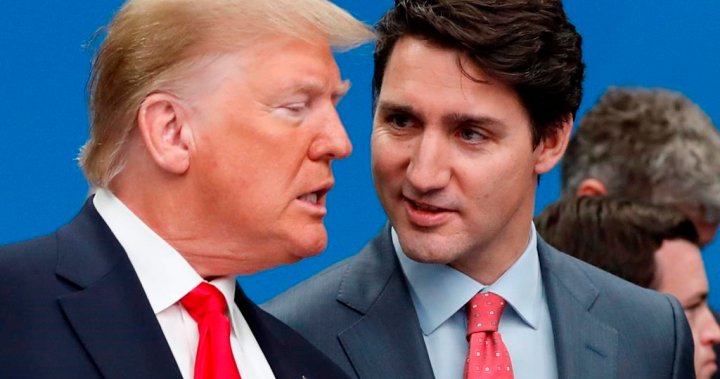In the aftermath of the U.S. presidential election, Republican strategist Jeff Timmer suggests that Canada may need to treat incoming president Donald Trump as the “senior partner” in the Canada-U.S. relationship to protect Canadian interests. Timmer, who has been critical of Trump and worked to defeat him in previous elections, believes that following Trump’s lead may be necessary to navigate the expected protectionist policies of the new administration. He acknowledges that this approach may not sit well with Canadians, but suggests that it could be effective in achieving their goals.
Canada is bracing for potential challenges in cross-border trade, immigration, and defense spending under a Trump presidency. However, Deputy Prime Minister Chrystia Freeland has expressed confidence in Canada’s preparedness for these impacts, having anticipated Trump’s return to the White House. She believes that Canada’s alignment with the U.S. on Chinese tariffs may provide a solid foundation for upcoming trade negotiations and could potentially exempt Canada from blanket tariffs on foreign imports promised by Trump in his next term.
Timmer predicts that Trump will continue to pressure NATO allies to meet their defense spending commitment of at least two percent of GDP. This requirement may pose challenges for Canada, which has projected reaching the target by 2032, despite doubts about the government’s plan to achieve this goal. Timmer also emphasizes the importance of addressing immigration concerns, particularly with increased migration to North America. He suggests that Canada, along with the U.S. and Mexico, should focus on managing influxes of immigrants from their southern borders.
During the recent election, Timmer was involved with The Lincoln Project, a group of former Republican strategists dedicated to defeating Trump. Despite Trump’s victory, Timmer was surprised by the scale of his win, attributing it to economic factors. He believes that economic circumstances have created challenges for younger generations, particularly younger Black, Latino, and white voters, leading to support for Trump. Timmer points to economic anxiety as a driving force behind Trump’s popularity, alongside issues of xenophobia and sexism.
Looking ahead to a potential second Trump administration, Timmer anticipates a continuation of the chaotic and divisive nature of his first term. He expects Trump to pursue his vision of mass deportations, deregulation, and government restructuring, with the extent of these actions depending on Republican control of Congress. With Republicans maintaining control of the Senate, the balance of power in the House will influence the administration’s ability to implement its agenda. Timmer emphasizes the importance of these dynamics in shaping the future direction of U.S. policies under a reelected Trump.
Overall, Timmer’s assessment suggests that Canada may need to navigate the challenges of an incoming Trump administration by positioning the U.S. as the dominant partner in the bilateral relationship. While this approach may require concessions that could prove unpopular with Canadians, it may be necessary to safeguard Canadian interests amidst potential trade disputes, defense spending pressures, and immigration concerns. Timmer’s insights offer a perspective on the evolving dynamics between Canada and the U.S. under a new presidential term and highlight the importance of strategic engagement to navigate the shifting political landscape.













